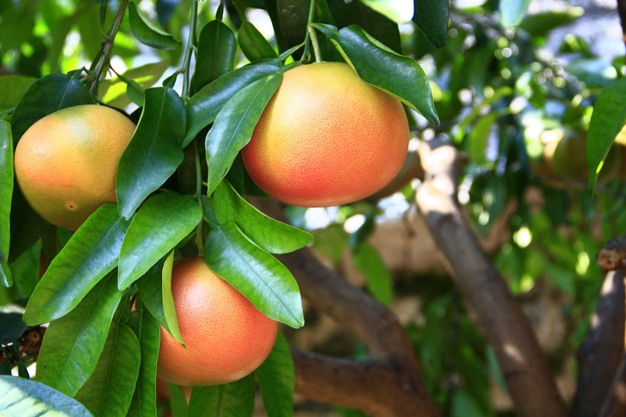"We've just started with the first South African grapefruit, which arrived in good quality," begins Menno Hogenelst of Dole Europe in mid-May. He sees that where usually this product arrives on an empty market, that is not the case this year. "There are still products of European and Turkish origin."

Menno notes that grapefruit's popularity is waning, especially among the younger generation, and its consumption has been declining for some time. "That market has been challenging in recent years. Nonetheless, grapefruit has a target market, and its consumption remains steady in Eastern Europe and France. Though our French colleagues tell us consumption is also stagnating there in the supermarkets," he says.
Menno says prices are, thus, somewhat under pressure. "May and the tail end of the season in September are usually when prices for South African grapefruit are best. And, fortunately, there's a little less supply then because, in South Africa, processing and juice prices are excellent. So category II or grapefruit of unpopular sizes aren't exported to Europe."
Guarding against oversupply
According to Menno, the grapefruit market benefits when there is no product oversupply. "Too much volume in the European market is a threat. Last year, we saw that if South Africa slightly controls its supply, the European market is healthy for grapefruit. But it's prone to oversupply, which can cause prices to fluctuate, and that's a risk for South African growers and European importers. A risk, which given all the increased costs, is increasingly difficult to offset," he admits.
In mid-May, the first South African lemons were en route to Dole. Menno expects this market to develop in the same way as grapefruit. "The lemons arrive on a market that's not completely empty; there's still quite a bit of Spanish product. Still, there are always customers who want to switch to the new South African crop right away. That supply will be somewhat lower early in the season, so prices should be healthy."
Enough volume expected
Hogenelst reckons there will be sufficient volumes of all South African citrus, but those will not be huge, thanks to the strong local juice market. "Growers will do the math to see if it's interesting to package for European fresh consumption," he explains. The orange disease Citrus Black Spot is something that affects that supply. "Due to climate change, there was plenty of rain at the wrong times during last year's season. Certain pre-harvest treatments could, thus, not be done, resulting in a lot of Citrus Black Spot. So some orchards are fully or partially blacklisted in Europe for this season, and those volumes cannot come to Europe."
Dole's South African growers anticipate the global orange concentrate market will remain strong for some time. Menno points out that this is because of problems with tree diseases in orchards in Brazil. "Brazil used to supply many concentrates including to companies like Coca-Cola. Many Brazilian orange orchards, though, have been lost to a form of citrus canker," he continues. "Processors have been eating into their reserves for the past three years. Those are now depleted, and will take time to build up again. South African growers are, therefore, optimistic that the strong juice market will continue in the longer term."
Must keep fresh consumption market too
Menno, however, does not see this focus on the juice market affecting the European market's supply of South African citrus much. "Europe is essential to South Africa, volumes-wise. That's not going to change any time soon. In the longer term, South African growers will also need to keep the fresh consumption market. Europe will always represent a solid market for premium citrus and for, say, citrus in nets in supermarkets," concludes Menno.
For more information: Dole Europe
Dole Europe
Spectrumlaan 29
2665 NM Bleiswijk
info@doleexotics.com
www.doleexotics.com
